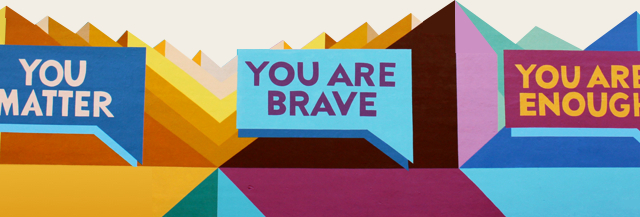Signs of depression should never be ignored. Know what to watch for so you’re prepared to help someone if they need it.


Who does depression affect?
There’s no one cause of depression. And there’s no one-size-fits-all solution. Depression impacts different people in different ways — and for different reasons. Learning more about that can help you find support or help someone who needs you.
Depression can affect anyone, but some people are at greater risk. The more we understand about the situations that might make someone vulnerable, the more we can help offer the support they need.
Experiences throughout your life shape your physical and emotional health, but adversity in childhood may play an important role in how you react to challenges and how you cope as you age. Adverse childhood experiences (also known as ACEs) can contribute to the development of mental health conditions later in life. Learn more about ACEs.
People who experience bullying, neglect, abuse, and violence in childhood or as adults may be more likely to develop depression, anxiety and other mental health conditions. Survivors of intimate partner violence and abuse report higher rates of depression.
If you are affected by abuse and in need of support, reach out to the National Domestic Violence Hotlineexternal.
Racism and social injustice create deep wounds in our communities that may deeply impact mental health. These traumatic experiences fuel fear, anger, hopelessness and other negative emotions that endanger the health of individuals and communities. Risk factors like these contribute to reports of higher rates of mental health conditions among Black, Latinx, Indigenous and people of color.
Cultural stigma around mental health may also get in the way of people of color finding the help they need. This can be compounded by economic, health and social disparities that put them at greater risk for many health problems, including depression and anxiety.
Learn more about cultural identity and mental health at NAMI.orgexternal.
Those who identify as lesbian, gay, bisexual, transgender, queer, questioning or intersex (LGBTQI) may confront stigma around their identity. Prejudice, discrimination, and rejection are some of the risk factors that put members of the LGBTQI community at higher risk of mental health conditions and suicide.
Learn more about LGBTQI mental health at NAMI.orgexternal.
People with disabilities have unique stressors that can increase the likelihood of depression and other mental health conditions. Though depression is one of the most common conditions associated with disability and chronic illness, it may be overlooked due to other health conditions.
For more information on disability and mental health, visit CDC.govexternal.
The daily stress of work can certainly take a toll on mental health. First respondersexternal, frontline healthcare workersexternal and those who provide essential servicesexternal – such as agriculture, retail and construction – face high levels of on-the-job stress that can contribute to anxiety, depression, loneliness and burnout.
Military service builds strength and resilience to face extreme stress and adversity, and these are habits and skills that increase one’s ability to cope with new situations. But persistent stress and danger can also have immediate and lasting negative impacts on the mental health of active military, veterans and their families.
Learn more about the mental health of active military members and veterans at NAMI.orgexternal.
A special message on COVID-19 and the events of 2020
We are living in an unprecedented moment and the events of this year have left many hurting. The range of emotions we are all feeling ─ including being depressed, anxious and afraid ─ are normal responses to the overwhelming stress.
Some people will bounce back on their own and some people will need more support to recover. For those who were already vulnerable to the negative effects of stress, managing through this may be even harder.
It’s important we understand these challenges and do everything we can to help the people we care about stay connected and get the support they need.






